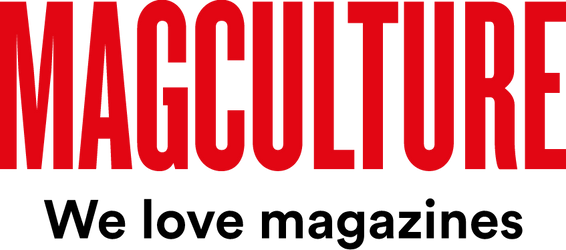
isolarii #5
Each edition of the tiniest publication on magCulture’s shelves, isolarii, is by its very nature a (miniaturised, printed) cousin of the It’s this one thing column. Published once every two months, the series is ‘a world of many worlds’ where, with each new addition, a different niche subject is rather beautifully and deftly explored.

Created and edited by Sebastian Clark and India Ennega, the idea for isolarii came to Sebastian while he was working on an smartphone factory line in Dongguan, China. While working there, he fell ill and the only book he had for company was a pocket-sized version of adventure novel Mount Analogue by René Daumal. It was then that an idea to create "something like an anti-iPhone” came to him. Enter the iPhone-shaped, but distinctly non-iPhone-like, isolarii.
Alongside that desire to provide an alternative to Apple et al’s overbearing tech-takeover, was an idea to ‘revive the extinct genre of the same name—the “island books” that emerged at the start of the Renaissance’, as the blurb goes. In those island books, ‘were poems, stories, and artworks—each a supposed island, a space that held a singular idea’ and this is precisely what Sebastian and India have created: ‘A growing archipelago. Islands from which to view the world anew.’

Five issues in (and one Turner Prize nomination later) and the series is indeed becoming an ‘archipelago’ of ideas—one in which a human-centred universe is oh-so passé. Within these carefully crafted islands of thought, humans do not reign supreme. The current issue, a lime-green volume titled Modern Animal by Berlin- (and sometimes Kiev-) based photographer and writer, Yevgenia Belorusets, is a perfect example of this.

‘Yevgenia is doing things in fiction that nobody else ever has,’ Sebastian told me over email as I thumbed through my own copy. ‘She is travelling through war-torn areas, interviewing dozens of people month after month, and creating a kind of contemporary folk literature—a great refutation of auto-fiction and its vanities.’

In the first few pages of Modern Animal, we’re presented with ‘A cycle of lectures on the modern lives of animals’ but as you advance through its 275 palm-sized pages, human-animal boundaries are jumbled, intertwined and wholly rearranged. Toward the end, the once-structured Modern Animal evolves into a dream-like mix of interview, folklore and fiction and—if you stay for the ride—Belorusets will take you to places you’ve never been before...

‘I think the reason people find us different is that they know we're not operating according to a fixed, thematic programme,’ muses Sebastian when I ask him what he hopes people take from isolarii. ‘They know that [it’s] something that might change; take a new form. They're really participants in the building of a new, international literary culture.’

Could this be the key to the petite publication’s success? As a pocket-sized series of encapsulated ideas—‘a world of many worlds’—isolarii reflects one of the most alluring features of independent publications: that they are each, in and of themselves, a world entire (and one inviting us in to explore, at that…)
Also in the series:
Salmon: A Red Herring by Cooking Sections
F Letter: New Russian Feminist Poetry ed. By Galina Rymbu, Eugene Ostashevsky, and Ainsley Morse
Purple Perilla by Can Xue
Street Cop by Robert Coover and Art Spiegelman
Series editors: Sebastian Clark & India Ennega
Art director: Ben Ganz


